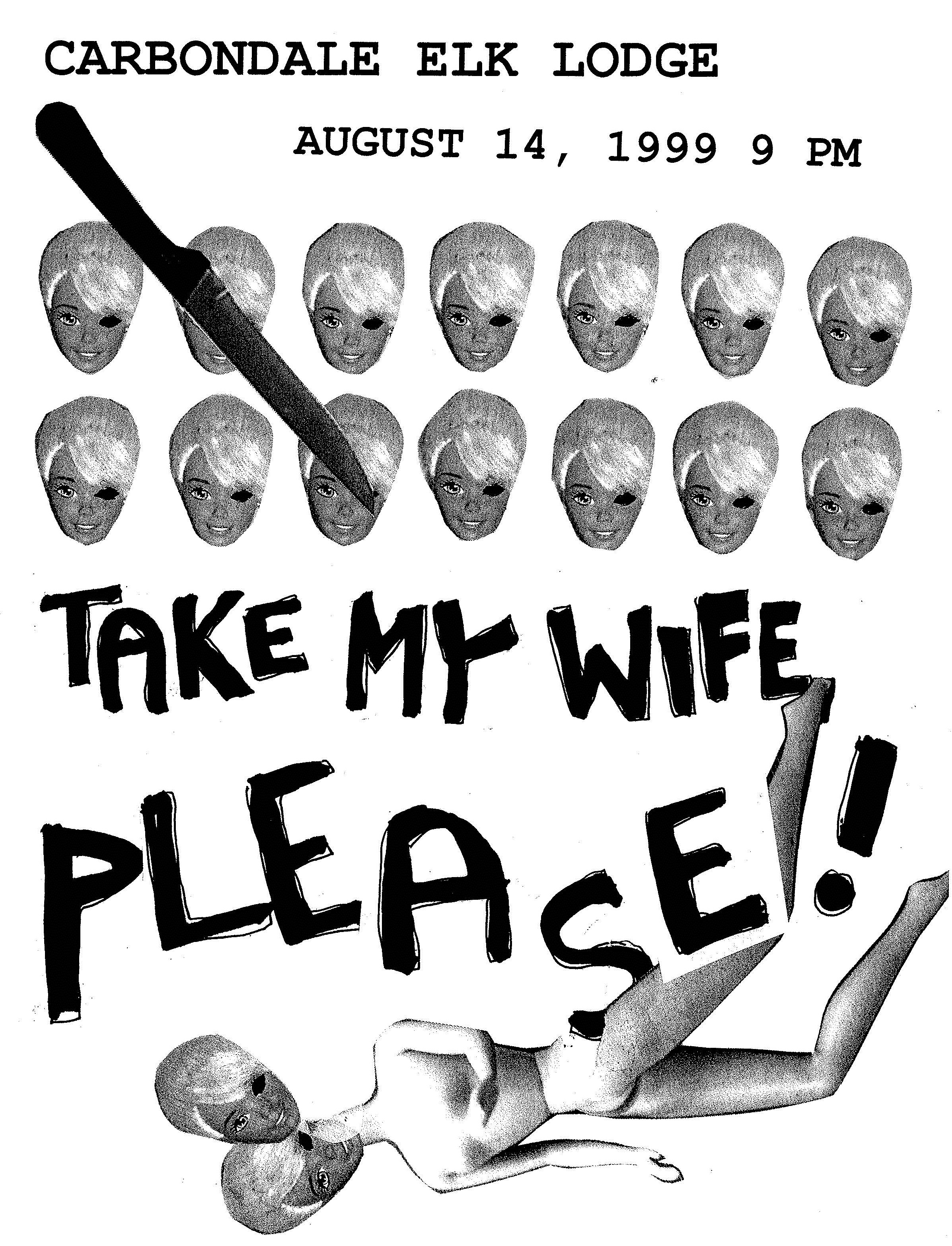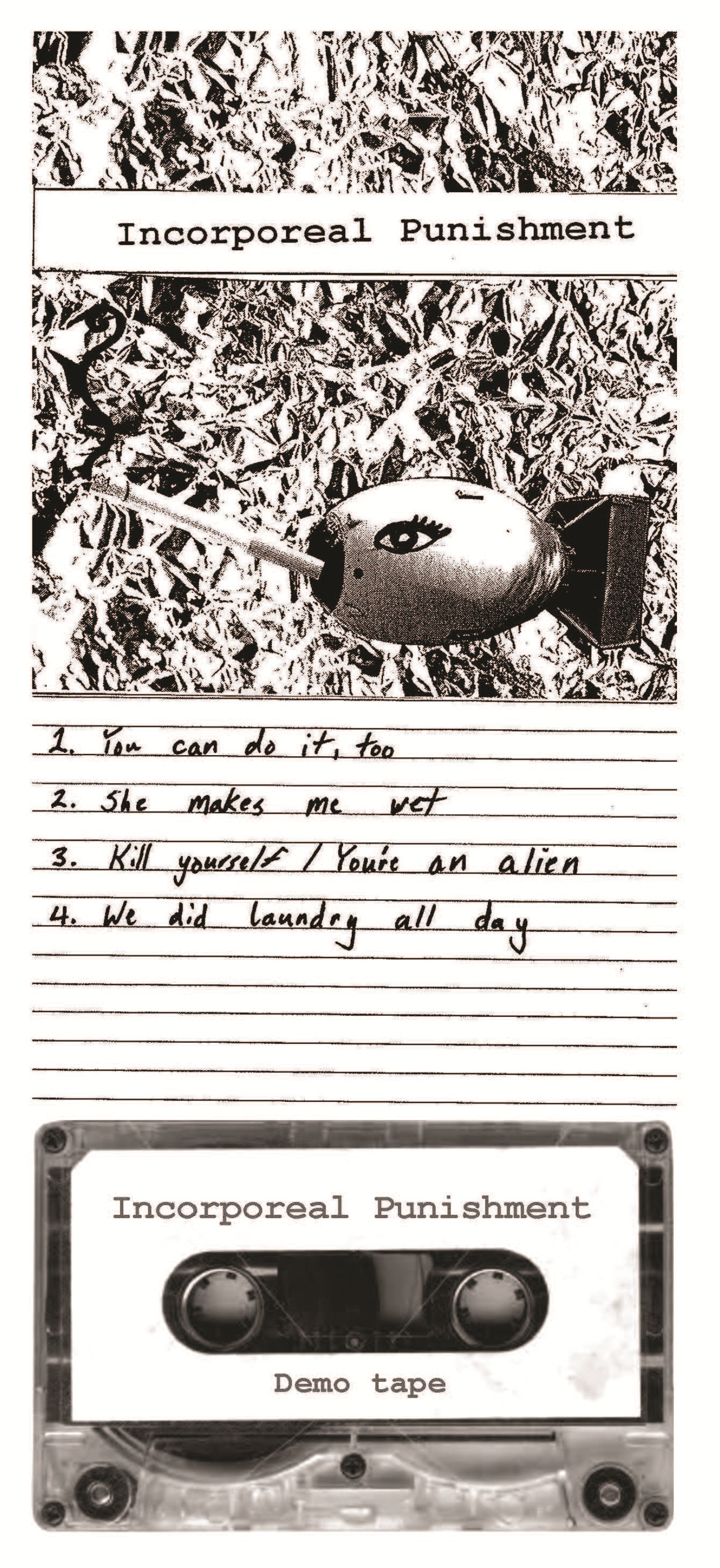High School Bands are as integral to the cultural makeup of America as professional sports or finance. For many Americans, forming or participating in a High School Band — or, in some cases, simply listening to one — marks their first engagement with culture on their own terms. However, as of this moment, no one has undertaken the monumental task of recording the exploits and the output of America’s High School Bands. In fact, few of us consider them at all and, when we do, the exercise is unfortunately often dismissed as simple nostalgia tourism. But their importance is more than nostalgic. Their value transcends narcissism. More than a series of transitional moments in the lives of individual kids, High School Bands tell the story of what it means to be young in the USA.
Alex Shephard and Scott Beauchamp are currently writing the definitive history of High School Bands in America. Every other week we will be publishing excerpts from the first volume of their forthcoming work, tentatively titled The Late Greats: High School Bands in America 1998-2005.
Take My Wife, Please! (May-September 1999)
Oak Ridge High School, Carbondale, Illinois
Jason Fontaine – Guitar/Vocals
Brian Laredo – Drums
Operating under the concept of “The people want shit, so let’s give them what they want,” Take My Wife, Please! was a reaction Jason and Brian had to “parents always trying to be funny and tell stupid jokes.” They decided to do something about it. Holding up a carnival mirror to their parents “lame puns” and “retarded knock-knock jokes,” TMWP! churned out novelty song after novelty song, each one based on a joke that they had heard their parents tell. Brian would roll fast marching beats over Jason’s rockabilly riffs, no song lasting longer than a few furious minutes. “We only played for parents — we thought it would make them feel stupid. But they just laughed at their own jokes again. It was so disgusting.” TMWP! played seven shows, the most notable of which was at the Carbondale Elks Lodge, which ended with an encore of “How To Kill A Blonde.”
Incorporeal Punishment (2000)
Hazelwood West High School, St. Louis, Missouri
James Conrad – Guitar
Billy Mornea – Bass
Frank Pole – Drums
Jason Horkheimer – Vocals/Keyboards
“Man, everyone just sucked. It was so boring. I was reading Burroughs, our hometown hero, for the first time and what he said about only the young bringing anything new in and they’re not young for long, it’s true. It was like we felt the clock running out or something, like we just had to do it, and we had to do it weird.” – Jason Horkheimer.
Most high school bands express feelings of alienation through music, but Incorporeal Punishment expressed music through acts of alienation. “Andre Gide called it the acte gratuite, I think,” guitarist James Conrad wrote in an editorial in his school paper, The Hazelwood Hero. Starting out as a group of kids pulling high-minded pranks on the student body, the four friends eventually turned their pranks into “happenings.” “One time we held a meeting of the Fellowship of Communist Athletes, sort of in protest of the Fellowship of Christian Athletes that had their meetings in the cafeteria. We handed out stickers saying stuff like “Ask Me About Marx” and “Have You Been Blacklisted?” said Billy Mornea. “We realized we could go further, so to speak, using music. Also LSD.”
The band played their first show at a classmate’s party. They had not been invited. Showing up with instruments and amps, they churned out songs that would appear on their first demo tapes: “She Makes Me Wet,” a sludgy, but fun take on sexual banality; “You Can Do It Too,” a sing-a-long praising the dangerously easy road to becoming a suburban cliché; “Kill Yourself/You’re An Alien,” about suicidal extraterrestrials, and “We Did Laundry All Day,” a sarcastic and saccharine love song satirizing domesticity. Although most of the attendees were put off, there were a few requests to appear at other parties. The band turned them down without discussion, preferring to appear uninvited and unannounced.
On one such occasion, at a private pool in a local subdivision, the band caught the ear of Justine Feld, who ran a small studio specializing in voice-over recordings, just before they were forcibly removed by neighborhood security. “I remember, they were just wearing stuff that could only really technically be called clothes because it covered their bodies — foil, boxes, tape. A few were wearing dresses or skirts, I think? They played a song about the ghosts of cartoon characters, and I could tell it was meant to be . . . not bad, necessarily, but definitely challenging. Really, they were pretty traditionally crafted songs as far as the structure went. But people were enjoying the weirdness. Billy told me once he thought their music was like putting a pill for a dog inside of some meat to make sure the dog would swallow it. I swallowed. I convinced them to record a demo at my studio. I produced them.”
After recording their first demo tape, they began playing more traditional sets at local record stores, all-age clubs, and VFW halls. Although their presentation had become more conventional, their concerts had as much avant-garde, unchecked energy as their earlier, impromptu gigs. Sometimes they would play half the set using their mouths to imitate the noises of their instruments, or announce bomb threats to different business establishments between songs. “This was before 9/11, you know? It was different; they got away doing that kind of thing. And the music didn’t suffer for it. If anything, they were playing better than they ever had. They were really coming together,” Justine told us in 2010.
And then Jason found Buddhism. “I didn’t ‘discover’ it. I had known about it, was aware of it. But I started going to temple with my neighbors, and that was really it for the band. It seemed like kind of a frenzied disappointment after reading the Diamond Sutra,” said Jason. The band soon broke up, though the remaining original members occasionally appeared at parties — always with a different name, always with one or two non-original members. Jason never performed with any of the original members — or anyone else — ever again.
All images courtesy of noted High School Band archivist Kelly Schmader.
This post may contain affiliate links.










